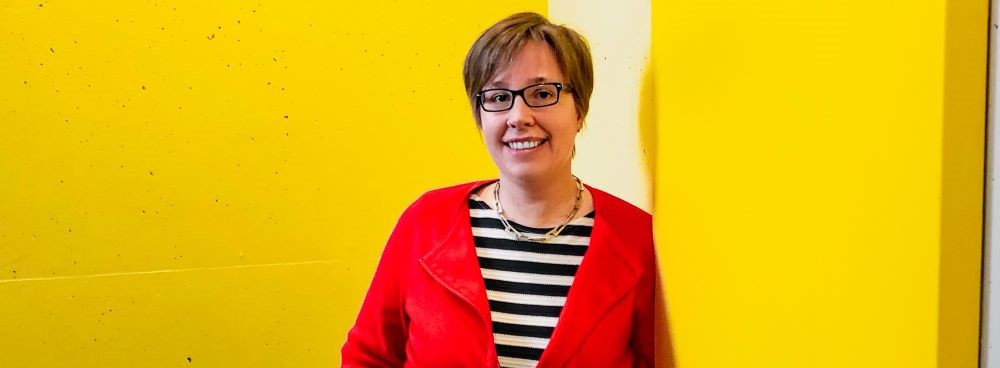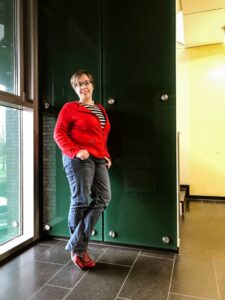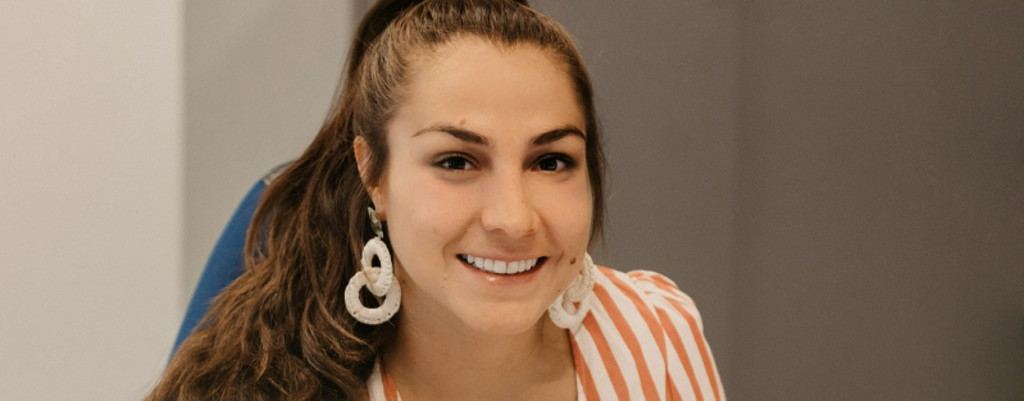In our series “Employees at Yokogawa” we introduce Dr.Silke Müller today. She works as a data scientist at Yokogawa.
Dear Silke, thank you very much for taking the Time for an Interview. You are Data Scientist at Yokogawa. Please explain, what is your Field of Activity?
Dr.Silke Müller: My main responsibility is the area of data analysis. As the European contact person, I am available for customers and colleagues who want to carry out a project in the field of data science. As an interface to our global headquarter in Japan, I am always up to date with the latest developments.
My work also focuses on interdisciplinary cooperation with other departments, such as Marketing or Sales. I am involved in customer visits and events, such as the recent Pumps & Valves exhibition in Dortmund. At the fair, I presented our new tool for cavitation detection, which includes machine learning algorithms. I regularly give lectures on relevant topics related to Big Data. Most recently, I gave a presentation at the Automation Forum at the University of Applied Sciences Westküste on the possible applications of data analytics, including some practical examples.
How does one actually become a Data Scientist? What is your Background? What did you study?
Dr.Silke Müller: I am not a classic data scientist. Meanwhile, there are own courses of studies or the subject area of data analysis is more integrated into existing courses of studies and offered in elective subjects. I studied chemical engineering in Dortmund, Germany, and came to the topic rather coincidentally by my diploma thesis. For a change, I wanted to do something theoretical, because I had done a lot of practical work before. My diploma thesis was a project on the optimization of a chemical process with neural networks. I continued the topic in my doctorate, quite application-oriented at a water treatment plant, where we could actually use the solution. In this context, I got in contact with my previous employer and got stuck in this field, so to speak. The combination of classical process engineering and data analysis is a great thing for me!
What do you like most about your Job?
Dr.Silke Müller: I like the varied work, being involved in many very different projects. New, challenging and exciting topics keep coming up, no two days are the same. As a contact person for Europe, I have a high level of responsibility. I also enjoy working with different departments like Marketing & Sales.
Let us now turn to the Field of Artificial Intelligence (AI). To what extent are you involved in this area?
Dr.Silke Müller: AI is a global generic term, roughly speaking the execution of tasks by machines or computer systems and the imitation of human intelligence. I mainly deal with the field of Machine Learning, i.e. algorithms to learn from data or to deliver predictive results.
Is there a Yokogawa solution in the AI area? If so, which one?
Dr.Silke Müller: As software, we offer Process Data Analytics, which is based on the Mahalanobis Taguchi method, a machine learning process. However, we are not specifically committed to this method, because the questions and use cases are often very different and individual. Many algorithms are also available as open-source, e.g. in Python. The focus is on the customers, to whom we want to offer the best possible solutions for their use cases. Co-Innovating tomorrow is our motto, which we actively implement.
I’ve seen you offer Design Thinking Workshops. What are these Workshops about?
Dr.Silke Müller: Especially in the field of digitisation there are often complex questions. It is clear that digitization is essential if a company wants to be competitive in the long term. The big picture is well known. Now it’s all about the details: Where do you want to go? The majority of companies have little experience with digitisation and it is difficult to find solutions without external help. Which approaches are the best? What is the best way to achieve the greatest possible success as quickly as possible?
As a trained Design Thinking coach, I support companies in developing their individual digitization strategy in a team. Design Thinking can also be very helpful in gridlocked situations, as it puts the user in the centre of attention.
What do you like best about Yokogawa?
Dr.Silke Müller: The diversity and the team spirit: I can deal with innovative topics and am always intellectually challenged. Even in stressful times, a strong sense of collegiality can be felt at Yokogawa. Everyone tries to help each other in the best possible way, even when their own resources are limited.
How do you reconcile Family and Career?
Dr.Silke Müller: I have two small children and can really combine family and career at Yokogawa. I work partly from my home office and partly from the office in Ratingen. Because of the flexitime, I can arrange my working hours freely, such as starting early. Business trips are not arranged at too short notice so that I can organize childcare during my absence.
Thank you for the interview!





